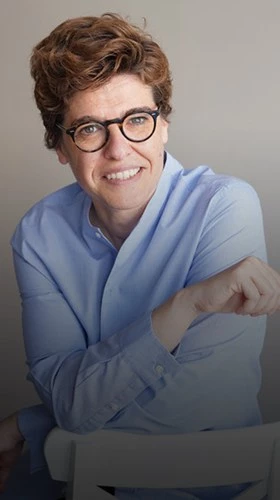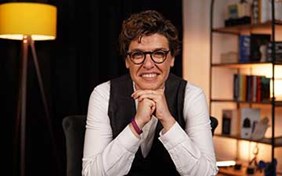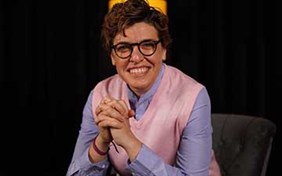In this talk, our speaker challenges conventional understandings of gender by advocating for a broader, more inclusive vision of equality—one that transcends the traditional male-female binary. They emphasize that gender should not be seen as a limiting framework but rather as a fluid concept that respects individual identity and agency. At its core, gender equality is about allowing all individuals—regardless of their gender identity—to dream, feel, and achieve freely, without societal constraints. This human-centered approach reframes gender not as opposition but as diversity, aligning equality with personal freedom and emotional expression.
The speaker also underlines that gender equality is not just a moral imperative but a strategic necessity in facing global challenges, including the climate crisis. They urge organizations to move beyond rhetoric and adopt measurable, structural actions that support inclusivity. From HR policies to marketing strategies, companies are called to take responsibility and create systems that ensure equity and representation. The talk closes with an invitation to engage in collective, future-oriented dialogue aimed at fostering genuine change through concrete practices.
Diversity & Inclusion
Drawing on a unique background that bridges the corporate world and the arts, the speaker offers a compelling perspective on diversity and inclusion, underlining that while humanity has always been inherently diverse, inclusion is a much more recent and ongoing challenge. They point out that building inclusive environments requires more than good intentions—it begins with acknowledging the privileges we hold and examining the unconscious biases that shape our perceptions of others. These internalized patterns often dictate who is seen as “normal” and who is marginalized, making self-awareness a foundational step in creating real equity.
The speaker stresses that diversity and inclusion are not abstract ideals but practical, human-centered values that must be reflected in workplace culture and everyday interactions. By confronting personal and systemic biases, organizations can foster spaces where all individuals feel seen, heard, and valued. Ultimately, the talk invites leaders and professionals to engage in honest self-reflection and to actively design inclusive structures that go beyond tokenism, promoting belonging at every level of an organization.














